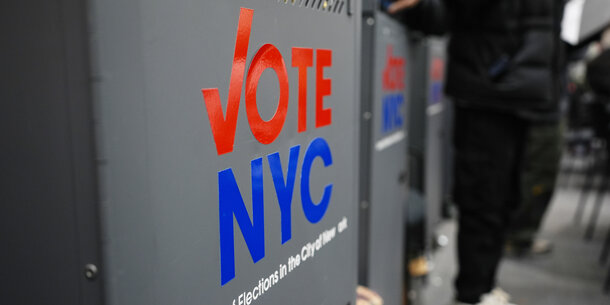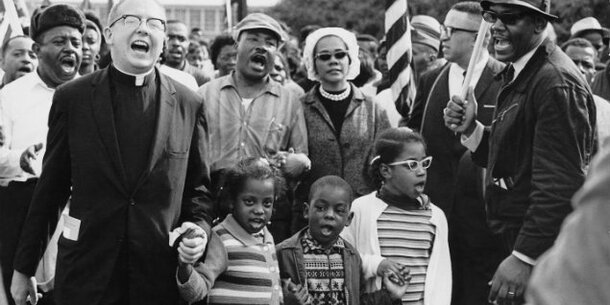Fifty-nine years ago today, President Lyndon Johnson signed the Voting Rights Act into law, undoing the barriers of the Jim Crow era and opening up important voting opportunities for communities of color. But in the last decade, the Supreme Court has relentlessly weakened this landmark achievement of the civil rights movement. In 2021, a solution that would restore the Voting Rights Act to full force was introduced in Congress: the John R. Lewis Voting Rights Advancement Act. That legislation, named for the late civil rights icon, was passed by the House but did not reach the 60 votes required to overcome a filibuster in the Senate. Had it become law, safeguards for minority voters would be in far better shape today.
The heart of the Voting Rights Act was “preclearance,” which required jurisdictions with a history of discrimination to obtain federal approval for any changes to voting policies. In 2013, the Supreme Court’s ruling in Shelby County v. Holder effectively eliminated it, and in doing so, emboldened states to adopt racially discriminatory policies. The John Lewis Voting Rights Act would have revived preclearance, barring racially discriminatory voting laws and other barriers that make it harder for people of color to participate in our democracy before they were put in place. Discriminatory congressional district maps, like those drawn by several jurisdictions following the 2020 census, would have been blocked.
The John Lewis Voting Rights Act would have also gone beyond restoring geographic preclearance and covered certain changes long known to have discriminatory effects, such as inadequately providing multilingual voting materials and reducing polling locations. And standardized public notice and transparency requirements would have been implemented — providing additional protections against any changes to voting practices that, intentionally or not, disenfranchise voters.
Instead, Shelby County unleashed a wave of discriminatory voting policies in the states. Within hours of the ruling, Texas announced it would implement a restrictive voter ID policy that a court had previously blocked. All told, in the 11 years following the decision, at least 31 states have enacted at least 103 new restrictive voting laws.
Even in just the law few years, restrictive laws continue to pass at alarming rates, disproportionately impacting minority voters. In 2022, at least 8 states enacted 11 restrictive voting laws. In 2023, at least 14 states enacted 17 restrictive voting laws. In 2024, at least 10 states enacted 19 restrictive laws. Had Congress passed the John Lewis Voting Rights Act in 2022, many of these harmful policies would have been subject to federal review and likely blocked.
Without the protection of preclearance, voters must rely on lawsuits to challenge discriminatory voting practices and racially discriminatory maps. Under Section 2 of the Voting Rights Act, policies that deny the right to vote on account of race or color are prohibited. But lawsuits are expensive, time consuming, and allow discriminatory policies to be in effect until they’re resolved.
Compounding this problem, in 2021, the Supreme Court weakened Section 2 in Brnovich v. Democratic National Committee. That decision made it more difficult to challenge discriminatory voting laws in court, tilting the playing field in favor of discriminatory states.
That was the case in the 2022 redistricting cycle. Several courts, including the Supreme Court, concluded that some proposed maps were in fact discriminatory. But lawsuits were not enough to block discriminatory maps from being used during the midterm elections in Alabama, Georgia, Louisiana, and Texas. Voters in other states are still awaiting their day in court. All told, as of July 2024, 32 cases have challenged congressional or legislative maps under Section 2.
The Voting Rights Act was among the most successful and pivotal legislation to come out of the civil rights movement. It increased participation among minority voters and blocked racially discriminatory maps intended to limit their voting power. Congress’s failure to pass the John Lewis Voting Rights Act and its companion bill, the Freedom to Vote Act, has weakened our democracy. On the anniversary of the Voting Rights Act’s enactment, it is critically important to acknowledge all the obstacles that remain for minority communities and the urgent need for reform. Congress must prioritize passing the John Lewis Voting Rights Act and the Freedom to Vote Act — not just to rectify past injustices, but to safeguard the future of our democracy for all eligible voters.



